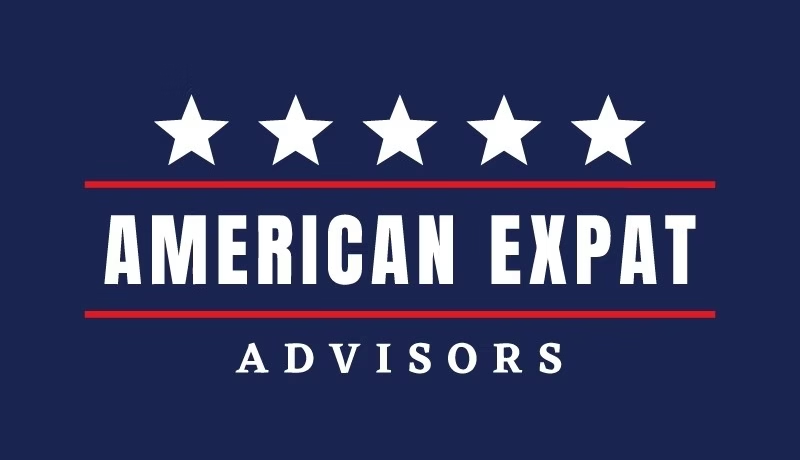A long term move abroad changes more than your view. It changes the rules that touch your money. Transfers and balances matter, but structure matters more. If your retirement plan was built for a U.S. life, it needs a cross border test. That test looks at where your accounts sit, what they hold, and how your new country treats them. Done early, it can reduce cost and stress. Done late, it becomes a clean up. We prefer the first path.
Why a U.S. only plan may not fit a life abroad?
- A domestic first plan rarely accounts for new residency, local tax rules, and reporting timelines.
- Moving cash is simple to picture. The cross border rules on accounts and investments are not.
- When your tax home moves, assumptions can break. Things like treaty treatment, withholding, account access, and product availability can shift quickly.
The mutual fund problem in plain English
- Many Americans abroad run into issues with mutual funds. The same label can mean very different tax and reporting outcomes once you live outside the U.S.
- A U.S. domiciled fund may be fine in some accounts and not in others. A foreign domiciled fund can create complex reporting and potentially higher tax.
- Common warning signs: surprise forms, higher friction on taxes, and account access headaches with certain providers.
Test your plan before you move
Step 1: Map your accounts by type and location
List each account. Note whether it is U.S. or foreign, and who the provider is.
Step 2: Identify investment vehicles that could cause trouble abroad
Record each holding by wrapper and domicile. Mark mutual funds, ETFs, and other pooled vehicles that may be treated differently in your destination country.
Step 3: Check plan assumptions against where you will live
Look at local rules on dividends, capital gains, retirement withdrawals, and reporting. Confirm whether your current provider will keep your account open after a change of address.
Step 4: Timeline your action windows
Create a calendar for steps before departure, the first 183 days abroad, and your first local tax year. Add renewal and filing dates so nothing slips.
Options when you already hold mutual funds
With a U.S. licensed advisor, people often explore options like:
- Keep, switch, or restructure within permitted accounts, with clear tax and access tradeoffs.
- Consider rollovers for old U.S. 401 k plans into IRAs that are accessible from abroad, where appropriate.
- Simplify reporting while keeping the plan aligned with your long term goals.
What good guidance looks like: plain English, transparent pros and cons, and actions paced to your real life dates. No product push. No hype.
Get a referral to an independent advisor who serves Americans abroad.
AEA role – education first, advisors by referral
American Expat Advisors focuses on education and clear next steps. If you want licensed guidance, we introduce you to independent U.S. licensed advisors who regularly serve Americans abroad. A typical first consult includes a document review, an account map, and practical next steps that fit your move timeline.
Who this helps most
People who want to understand their options, are willing to roll up their sleeves, and prefer informed decisions over last minute fixes.
Quick readiness checklist
- I know which accounts are U.S. versus foreign.
- I have flagged any mutual funds or pooled vehicles that could be problematic abroad.
- I have a plan for old 401 k assets and any employer plans I am leaving behind.
- I understand how my destination treats U.S. dividends, gains, and retirement withdrawals.
- I have a first year abroad calendar that includes key filings and decision dates.
Download the PFIC and Mutual Fund Basics Guide
Understand the rules that can impact your holdings abroad.
Common myths to leave behind
- Myth: It is only about how much cash I transfer.
- Reality: Structure and location of accounts and holdings often matter more.
- Myth: I can fix structure later with no cost.
- Reality: Delays can reduce options and raise tax and reporting friction.
- Myth: All funds are treated the same across borders.
- Reality: Domicile and wrapper can change the rules and the paperwork.
Next step:
If you are planning a move or already abroad, start with education that focuses on cross border realities.
- Speak to a U.S. Licensed Advisor
Get a referral to an independent advisor who serves Americans abroad. Clear options. No pressure.
Link: Contact Us - Download the PFIC and Mutual Fund Basics Guide
Learn the pitfalls to avoid before or after your move.
Link : PFIC Trap
Frequently Asked Questions
Do I need to move my money before I move abroad?
Sometimes. It depends on account type, holdings, provider policies, and your destination rules. A mapped plan can clarify timing.
Can I keep my U.S. IRA while living overseas?
Often yes. Policies vary by provider and country. Confirm access, trading rules, and any limits after a change of address.
What if I already moved and hold mutual funds?
ou still have options. Start with an account map and a review to understand the tradeoffs, then sequence changes on a clear timeline.
Compliance and positioning
American Expat Advisors is an educational and marketing platform. We are not a licensed financial advisory firm. We refer individuals to independent U.S. licensed financial advisors who specialize in serving Americans living abroad. We do not provide financial, legal, or tax advice. Please consult a qualified professional regarding your individual situation.



